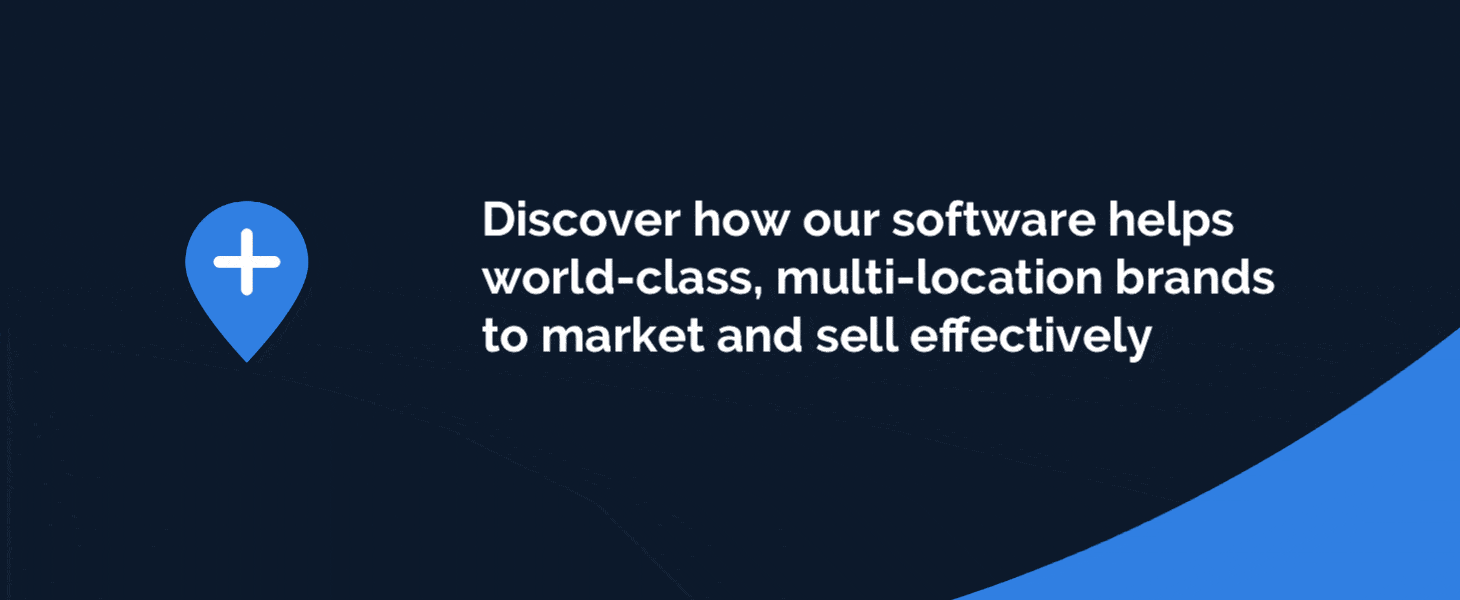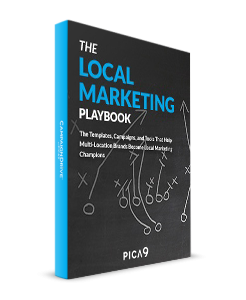Brand marketers at multi-location brands have long relied on marketing software to manage distributed marketing efforts. While early solutions required significant custom development, today's SaaS platforms have revolutionized the way brand managers work. With SaaS local marketing automation, brand managers can now focus on driving marketing results rather than navigating complex development cycles or outdated systems.
The SaaS revolution continues to dominate the marketing technology landscape. Gartner predicts that worldwide SaaS revenues will reach $261.7 billion in 2024, highlighting the massive shift toward cloud-based solutions. In this post, we’ll explore why SaaS local marketing automation has become essential for brand managers and how it empowers them to stay competitive in today’s fast-paced marketing world.
The Benefits of SaaS Local Marketing Automation
In local marketing automation, and in enterprise software more generally, veteran IT specialists sometimes treat SaaS applications with skepticism. These naysayers often claim that only a customized solution will meet all of the brand's particular needs (and the desired level of IT funding).
But SaaS applications are able to deliver value in ways custom software never could. For brand managers, SaaS local marketing automation systems provide three very clear benefits:
• Day-to-Day Flexibility
• Easy System Integrations
• Better Cost-Effectiveness
These benefits are a major reason why enterprise companies are turning to SaaS platforms for their marketing technology. Multi-location brands now see these promises of SaaS as essential qualities in all of their marketing software.
#1 The Flexibility of Self-Service
If Customer Experience Innovation is the trend dominating the world of marketing, User Experience Innovation is dominating software.
From the car service you use to instantly hail a cab to the messaging app that makes IMing at work easier, the software industry is building the standards of excellent UX into everything we do. This means that people no longer accept software that confuses and frustrates them, or that takes a year-long planning committee to get right. They expect it to work for them the way they want, and if it's no longer working that way they want to change it – now.
That demand for self-service software which delivers a great user experience doesn't stop at the apps we use for personal tasks. It's just as strong for the tools we use at work, and for enterprise marketers that applies to their marketing software as much as anything.
Franchisees, dealers and other local marketers expect to be able to get relevant, personalized marketing materials that don't take ages to create or require a run-around with the corporate design team. Marketers at headquarters want to make workflow updates without asking their account manager to call in a favor with the development team. And designers want software that works seamlessly with the design tools they already depend on.
Custom software struggles to deliver this kind of simplicity. But SaaS products can satisfy even the most demanding user experience snobs. Where customized systems need dedicated development resources and internal champions to remain viable, SaaS products are flexible without any development at all.
With more brands using SaaS platforms, their hallmark self-service configuration has become essential staying competitive. Even major international enterprises are finding that the agility these platforms enables is indispensable for their marketing programs.
#2 Seamless Integration Across Tools
If self-service configuration is what makes SaaS seem an attractive product for enterprises at first, the power to integrate with other enterprise applications is often what seals the deal.
Recent data shows that companies use an average of 130 software-as-a-service applications, underscoring the importance of interoperability. SaaS marketing platforms are built on scalable frameworks with open APIs, enabling seamless connections between systems like CRMs, MRMs, and analytics tools.
Built on scalable frameworks, often with open-source APIs available for various functions, a SaaS marketing platform isn't limited to code that's been written exactly to spec. Instead of the painful process of downloading data from one place and uploading it in another, or trying to "hack" systems with workarounds, SaaS platforms let brands set up seamlessly integrated data feeds between different applications.
For brands, especially enterprises with many applications for many different purposes, the result is a CRM system that can connect directly to the MRM system, and a local marketing automation platform that can integrate with both of them.
#3 Cost-Effectiveness Without Sacrificing Quality
Bottom-line efficiency is often a priority for marketing leaders at major brands – and here, too, SaaS platforms deliver a major advantage.
Right from the jump, SaaS vendors are more willing to be transparent about the costs associated with their products and will frequently list standard pricing packages on their websites.
See What Transparent Local Marketing Automation Pricing Looks Like.
This commitment to transparency is based on the fact that SaaS products have predictable underlying costs, like the infrastructure and R&D costs that a vendor puts into the product.
But SaaS platforms are also more cost-effective because they're more efficient.
By taking input from dozens of customers instead of just a single stakeholder, these products spread the work of innovation across a broader community. Brands no longer have to spend valuable internal resources sourcing ideas and feedback on product performance and future enhancements – something that often isn't even feasible given that dealer and franchisee stakeholders are often too remote for reliable feedback mechanisms.
Here's an updated and modernized version of the blog post with relevant stats and updated references:
3 Reasons Brand Managers Need SaaS Local Marketing Automation
Brand marketers at multi-location brands have long relied on marketing software to manage distributed marketing efforts. While early solutions required significant custom development, today's SaaS platforms have revolutionized the way brand managers work. With SaaS local marketing automation, brand managers can now focus on driving marketing results rather than navigating complex development cycles or outdated systems.
The SaaS revolution continues to dominate the marketing technology landscape. Gartner predicts that worldwide SaaS revenues will reach $261.7 billion in 2024, highlighting the massive shift toward cloud-based solutions. In this post, we’ll explore why SaaS local marketing automation has become essential for brand managers and how it empowers them to stay competitive in today’s fast-paced marketing world.
The Benefits of SaaS Local Marketing Automation
Despite lingering skepticism among some IT professionals who favor custom-built software, SaaS solutions consistently prove their value. For brand managers, SaaS local marketing automation systems provide three clear advantages:
- Day-to-Day Flexibility
- Easy System Integrations
- Cost-Effectiveness Without Compromise
These benefits are why more multi-location brands are turning to SaaS platforms for their marketing technology needs.
#1 The Flexibility of Self-Service
In today’s marketing world, both customers and employees demand seamless user experiences. The rise of self-service tools like Uber and Canva has set high expectations for software usability, and these expectations extend to the workplace.
Franchisees, dealers, and local marketers expect immediate access to branded, localized marketing materials without needing to navigate through layers of approvals. Similarly, corporate marketers need to make updates to workflows and campaigns without calling IT for assistance. SaaS platforms deliver the self-service capabilities that enable these users to operate efficiently.
Unlike custom software, which often requires ongoing developer involvement for updates and maintenance, SaaS platforms allow for instant configuration and adaptation without technical expertise. This agility has become essential for brands looking to maintain a competitive edge.
Even large enterprises now view SaaS solutions as indispensable for enabling teams to quickly adapt to market demands while maintaining a consistent brand experience.
#2 Seamless Integration Across Tools
SaaS platforms excel at integrating with other enterprise tools, making them a cornerstone of modern marketing ecosystems. With brands now managing a growing number of digital tools and applications, integration is no longer optional—it’s essential.
Recent data shows that companies use an average of 130 software-as-a-service applications, underscoring the importance of interoperability. SaaS marketing platforms are built on scalable frameworks with open APIs, enabling seamless connections between systems like CRMs, MRMs, and analytics tools.
For multi-location brands, this means local marketing platforms can integrate directly with customer relationship management systems and other mission-critical applications, streamlining workflows and reducing manual effort. These integrations save time, reduce data silos, and improve decision-making by giving teams access to a unified data ecosystem.
#3 Cost-Effectiveness Without Sacrificing Quality
Cost efficiency remains a top priority for marketing leaders. SaaS platforms provide predictable pricing and transparent cost structures, making them easier to budget for compared to custom software solutions, which often come with hidden maintenance costs.
Additionally, SaaS platforms leverage collective innovation. By gathering feedback and insights from a broad customer base, vendors continuously improve their products. This shared innovation means brands don’t need to allocate internal resources to drive updates or enhancements—SaaS vendors take care of it.
The result is a more efficient, reliable, and cost-effective solution that allows brands to focus on their core marketing objectives rather than managing software.
Why SaaS Local Marketing Automation Is Essential for Brand Managers
In an era of rapid technological change and growing competition, brand managers need tools that are flexible, integrative, and cost-effective. SaaS local marketing automation platforms deliver on all these fronts, enabling brands to maintain consistency while empowering their local marketers.
The SaaS model has transformed how multi-location brands operate, helping them scale their marketing efforts with greater ease and efficiency. By embracing SaaS local marketing automation, brand managers can drive better results, reduce operational complexity, and stay ahead of the competition.
Learn What Else SaaS Marketing Software Means for Enterprises. Download the Exclusive Report.
To begin your journey in local marketing automation, we suggest requesting a free product demo of CampaignDrive by Pica9, a SaaS brand management platform loved by leading brand.


